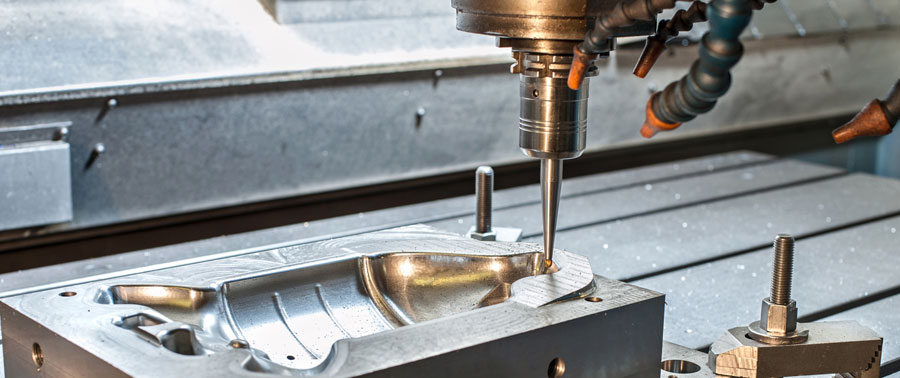Introduction
In recent years, the field of medical CNC machining has witnessed significant advancements that have revolutionized precision and efficiency in healthcare. CNC machining, short for Computer Numerical Control machining, involves the use of computer-controlled machines to manufacture highly precise and complex parts. This technology has found extensive applications in various industries, including healthcare. In this article, we will explore the latest advancements in medical CNC machining and understand how they are transforming the healthcare industry.
Precision in Medical CNC Machining
One of the primary advantages of CNC machining in the medical field is its unparalleled precision. The use of computer-controlled machines ensures that medical devices and components are manufactured with extremely tight tolerances. This level of precision is crucial in healthcare, where even the smallest inaccuracies can lead to significant consequences for patients. CNC machines can produce parts with tolerances as low as 0.001mm, ensuring that medical devices fit precisely and function as intended.
Efficiency in Medical CNC Machining
In addition to precision, advancements in medical CNC machining have also significantly improved efficiency in healthcare. Traditional manufacturing methods often involve labor-intensive processes that are time-consuming and prone to errors. With the use of CNC machines, medical device manufacturers can automate the production process, resulting in faster turnaround times and reduced labor costs. Moreover, the automation capabilities of CNC machines allow for continuous production without the need for human intervention, leading to increased productivity.
Applications in Medical CNC Machining
Medical CNC machining has a wide range of applications in the healthcare industry. It is commonly used in the production of orthopedic implants, such as hip and knee replacements, where precision and quality are paramount. CNC machines can accurately mill complex shapes and intricate features required for these implants. Additionally, medical CNC machining is employed in the manufacturing of surgical instruments, where high precision and cleanliness are essential. CNC machines can produce sharp and sterile surgical tools with ease.
Advancements in Medical CNC Machining
The advancements in medical CNC machining have further enhanced its capabilities and expanded its potential applications in healthcare. One such advancement is the integration of real-time monitoring systems into CNC machines. These systems allow for continuous monitoring of the machining process, ensuring quality control and preventing defects. Additionally, the integration of robotics into CNC machining has enabled even greater automation and improved productivity. Robotic arms can load and unload materials, further reducing the need for human intervention.
Another significant advancement is the use of advanced materials in medical CNC machining. CNC machines can now work with a wide range of materials, including titanium, stainless steel, and biocompatible polymers. This versatility allows for the production of medical devices that meet specific requirements, such as strength, durability, and compatibility with the human body.
Future Implications
The advancements in medical CNC machining have far-reaching implications for the future of healthcare. With increasing demand for personalized medicine, CNC machines can play a crucial role in the production of patient-specific medical devices. By utilizing patient data and 3D printing technologies, CNC machines can manufacture customized implants and prosthetics that perfectly fit individual patients.
Furthermore, the integration of artificial intelligence (AI) in medical CNC machining holds great promise. AI algorithms can optimize machining processes, identify potential defects, and predict machine maintenance needs. This integration can lead to further improvements in precision, efficiency, and cost-effectiveness in medical CNC machining.
Conclusion
The advancements in medical CNC machining have revolutionized the precision and efficiency of manufacturing medical devices and components. With unparalleled precision and increased efficiency, CNC machines have become indispensable in the healthcare industry. The integration of real-time monitoring systems, robotics, advanced materials, and AI will continue to push the boundaries of medical CNC machining, paving the way for personalized medicine and improved patient outcomes in the future.
-

- OEM ձուլված մասեր և բաղադրիչներ
-

- Մագնեզիումի համաձուլվածքից ձուլող էլեկտրական տրանսպորտային միջոցի միջնամասային շարժիչի պատյան
-

- parts&comopnents for bicycle suspension fork for MTB
-

- Magensium լեռնային հեծանիվների շրջանակ
-

- Մագնեզիումի համաձուլվածքի թիքսոմոլդինգ ձուլման անօդաչու թռչող սարքերի մասեր
-

- Magnesium alloy die-casting wheel for ebike

 0086-750-5616188
0086-750-5616188 +86 13392089688
+86 13392089688 sales@zhongmei-tech.com
sales@zhongmei-tech.com








